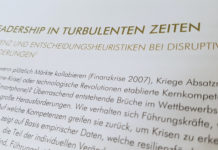If you push your limits, you perform at your best
Peter Habeler is an Austrian mountaineer, alpinist and author. In 1978 he ascended, together with Reinhold Messner, the Mount Everest as first man without supplementary oxygen. He was one of the experts at the SURPRISE FACTORS SYMPOSIUM 2014 „Beyond Borders — The strenght to emerge from crisis” which has taken place in Gmunden (Austria).
There is a need for more people who are willing to leave their comfort zone and to allow new experiences. For that, people need to take the responsibility for their own decisions. Only in this way you can get more confident and can keep looking out for new limits and experiences.
„Because, at the mountain you can only rely on yourself”- No one else can give you the strength thats required. You have to be willing to take risks, but you also have to be willing and able to accept the consequences. So you can continue to push yourself further. However, one must also be able to turn around, if the risks are too high. This natural given sense of risks can be learned, if you make your own decisions and are confronted with their consequences afterwards.
These principles and rules, which Habeler illustrated with the example of the extreme sports high-altitude mountaineering, can be applied to many other areas — such as work and private life, business and politics. Experiences with physical and mental limits in sport contribute to the formation of one’s personality, so that a knowledge of your own strengths arises. They can also contribute to the development of mechanisms which help us to better cope with future social peak experiences.
Quotations:
- „Maybe we can not achieve it, but we try.”
- „Everyone has his personal Everest.”
- „It’s about the question: who is stronger? I or me?”
- „It’s good to take a risk. Because afterwards you feel stronger.”
- „We tried to keep our team as small as possible — because it’s simpler.”
- „Once you come down from a mountain, you are looking for the next limit to push.”
Connecting factors for ACADEMIA SUPERIOR
Points for further discussion:
- How to get out oft he comfort zone and create new experiences?
- Can you keep all things simple?
- How can politicians take risks, but also bear the consequences of their decisions?
- How can we make politicians and society to see things more optimistic — even if you are at the limit?
- How do you define smart risks?
- Which limits should we exceed?
Tools for development:
- Replace the culture of risk avoidance by a culture of change.
- Small teams are simpler at specific challenges.
- Develop rituals to avoid bad decisions.
- Define points, at which the society has to reverse a development.
- Train people to become entrepreneurs of their own life.
- After crossing a limit, start looking out for the next limit.







